简体中文
繁體中文
English
Pусский
日本語
ภาษาไทย
Tiếng Việt
Bahasa Indonesia
Español
हिन्दी
Filippiiniläinen
Français
Deutsch
Português
Türkçe
한국어
العربية
What is ECN in Trading? A Simple Guide
Abstract:ECN stands for Electronic Communication Network. A technology-driven marketplace that directly connects buyers and sellers, including banks, hedge funds, brokers, and retail traders, allowing orders to be matched without the broker acting as the counterparty. In forex and CFD trading, ECN execution is prized for transparent pricing, raw spreads, and faster order matching.
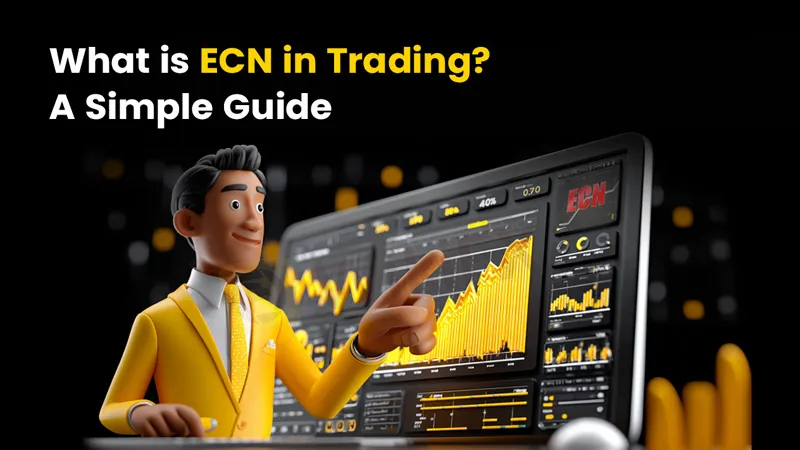
ECN stands for Electronic Communication Network. A technology-driven marketplace that directly connects buyers and sellers, including banks, hedge funds, brokers, and retail traders, allowing orders to be matched without the broker acting as the counterparty. In forex and CFD trading, ECN execution is prized for transparent pricing, raw spreads, and faster order matching.
How ECN works
Instead of the broker taking the other side of your trade (the market-maker model), an ECN aggregates live quotes from multiple liquidity providers and market participants and matches compatible buy and sell orders. Think of it as an electronic order book: when someone‘s bid matches another’s ask, the trade executes.
Short takeaways:
- Orders are routed into a network where matching happens across participants.
- You often see Depth of Market (DOM) or Level II data — multiple price levels and sizes, not just the best bid/ask.
- Brokers using ECN typically show raw spreads and charge a separate commission per trade.
ECN vs STP vs Market Maker
- ECN: True order-book matching between participants with visible order flow and generally tighter raw spreads. Commissions are usually charged separately.
- Market Maker: Broker often takes the opposite side of client trades and may mark up prices. Spreads are typically fixed or widened by the broker. Potential conflicts of interest can exist.
- Straight Through Processing: Broker routes orders to liquidity providers. Prices may be aggregated, and the broker can still apply markups. STP is a broad term and not always the same as ECN.
Advantages of ECN trading
- Transparency: You see real market prices and order depth.
- Tighter raw spreads: Because youre seeing quotes from liquidity providers, spreads can be very low during liquid times.
- Less price manipulation: Brokers route to the network rather than acting as a counterparty.
- Good for scalpers and algos: Low spreads and fast matching help strategies that rely on very small price moves.
- Price improvement: Limit orders can be filled at better-than-expected prices if matched.
Reputable Brokers offering ECN
Vantage
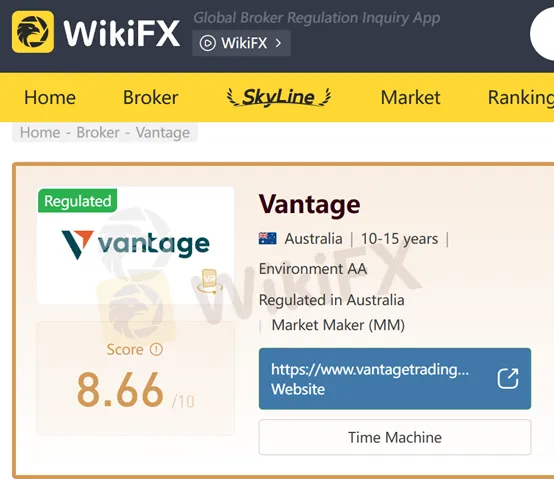
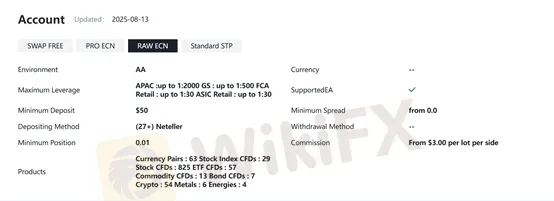
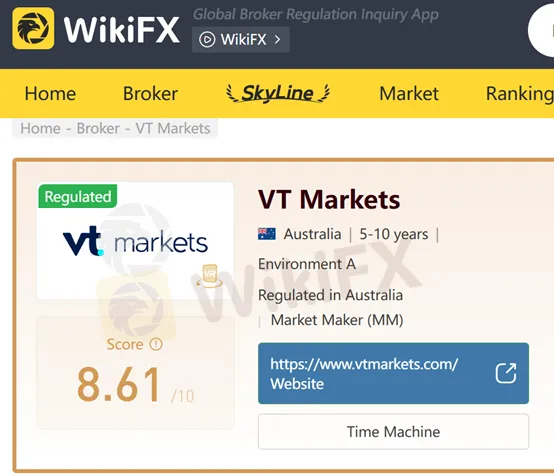

Practical tips when trading on ECN
- Calculate total cost: Always add spread + commission (and consider swaps and slippage).
- Use limit orders when possible: They reduce slippage and may get price improvement.
- Test execution: Observe spreads and fills across sessions and during news with a demo or micro account.
- Monitor liquidity windows: London/New York overlaps usually offer the tightest spreads.
- Read the execution policy: Check how the broker handles latency, partial fills, and order routing.
Conclusion
ECN is a marketplace-style execution model offering clean access to real liquidity, transparent pricing, and fast matching — ideal for active traders and algos. Its not universally “better” for everyone: weigh the trade-offs (tight spreads versus commissions, speed versus complexity) and match the execution model to your strategy. Want a one-page checklist you can use when vetting ECN brokers? I can build it for you next.

Disclaimer:
The views in this article only represent the author's personal views, and do not constitute investment advice on this platform. This platform does not guarantee the accuracy, completeness and timeliness of the information in the article, and will not be liable for any loss caused by the use of or reliance on the information in the article.
Read more
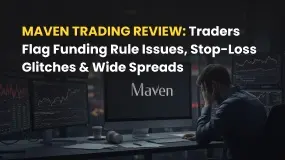
Maven Trading Review: Traders Flag Funding Rule Issues, Stop-Loss Glitches & Wide Spreads
Are you facing funding issues with Maven Trading, a UK-based prop trading firm? Do you find Mavin trading rules concerning stop-loss and other aspects strange and loss-making? Does the funding program access come with higher spreads? Does the trading data offered on the Maven Trading login differ from what’s available on the popular TradingView platform? These are some specific issues concerning traders at Maven Trading. Upset by these untoward financial incidents, some traders shared complaints while sharing the Maven Trading Review. We have shared some of their complaints in this article. Take a look.
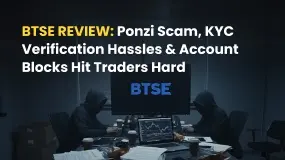
BTSE Review: Ponzi Scam, KYC Verification Hassles & Account Blocks Hit Traders Hard
Have you lost your capital with BTSE’s Ponzi scam? Did the forex broker onboard you by promising no KYC verification on both deposits and withdrawals, only to be proven wrong in real time? Have you been facing account blocks by the Virgin Islands-based forex broker? These complaints have become usual with traders at BTSE Exchange. In this BTSE review article, we have shared some of these complaints for you to look at. Read on!
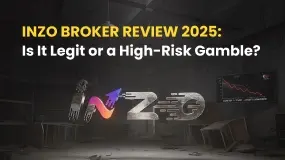
Inzo Broker Review 2025: Is It Legit or a High-Risk Gamble?
When you ask, "Is inzo broker legit?" you want a clear, straight answer before putting your money at risk. The truth about Inzo Broker is complicated. Finding out if it's legitimate means looking carefully at its rules, trading setup, and most importantly, the real experiences of traders who have used it. The broker shows a mixed picture - it has official paperwork from an offshore regulator, but it also has many user warnings about how it operates. This review gives you a fair and fact-based investigation. We will break down all the information we can find, from company records to serious user complaints, so you can make your own clear decision.

INZO Broker No Deposit Bonus: A 2025 Deep Dive into Its Offers and Risks
Traders looking for an "inzo broker no deposit bonus" should understand an important difference. While this term is popular, our research shows that the broker's current promotions focus on a $30 welcome bonus and a 30% deposit bonus, rather than a true no-deposit offer. A no-deposit bonus usually gives trading funds without requiring any capital from the client first. In contrast, welcome and deposit bonuses often have rules tied to funding an account or meeting specific trading amounts before profits can be taken out. This article gives a complete, balanced look at INZO's bonus structure, how it operates, and the major risks shown by real trader experiences. Read on!
WikiFX Broker
Latest News
Is Fyntura a Regulated Broker? A Complete 2025 Broker Review
Zetradex Exposed: Withdrawal Denials, Account Freeze & Bonus Issues Hurt Traders
Is Forex Zone Trading Regulated and Licensed?
PINAKINE Broker India Review 2025: A Complete Guide to Safety and Services
Exness Restricted Countries List 2025 Explained
Is Uniglobe Markets Legit? A 2025 Simple Guide to Its Safety, Services, and User Warnings
Is Inzo Broker Safe or a Scam? An Evidence-Based Analysis for Traders
WikiEXPO Dubai 2025 “Welcome Party” Kicks Off Tonight!
He Trusted a WhatsApp Group and Lost RM659,000
Moomoo Singapore Opens Investor Boutiques to Strengthen Community
Currency Calculator



